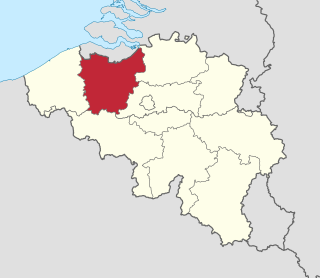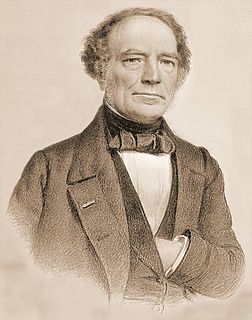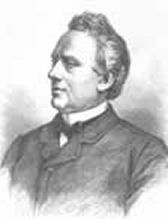| |||||||||||||||||||||||||
54 of the 108 seats in the Chamber of Representatives 55 seats needed for a majority | |||||||||||||||||||||||||
|---|---|---|---|---|---|---|---|---|---|---|---|---|---|---|---|---|---|---|---|---|---|---|---|---|---|
| |||||||||||||||||||||||||
| |||||||||||||||||||||||||
 |
|---|
| This article is part of a series on the politics and government of Belgium |
| Constitution |
|
| Foreign relations |
Partial general elections were held in Belgium on 8 June 1847. [1] The result was a victory for the new Liberal Association, which had been formed the previous year. [2] It won 33 seats to the Catholics' 21, as the latter were split into dogmatic and liberal groups. [2] Voter turnout was 77%, [3] although only 1% of the country's population was eligible to vote. [4]

Belgium, officially the Kingdom of Belgium, is a country in Western Europe. It is bordered by the Netherlands to the north, Germany to the east, Luxembourg to the southeast, France to the southwest, and the North Sea to the northwest. It covers an area of 30,688 square kilometres (11,849 sq mi) and has a population of more than 11.4 million. The capital and largest city is Brussels; other major cities are Antwerp, Ghent, Charleroi and Liège.
The Liberal Party was a Belgian political party that existed from 1846 until 1961, when it became the Party for Freedom and Progress, Partij voor Vrijheid en Vooruitgang/Parti de la Liberté et du Progrès or PVV-PLP, under the leadership of Omer Vanaudenhove.
Contents
Under the alternating system, Chamber elections were only held in four out of the nine provinces: East Flanders, Hainaut, Liège and Limburg. Thus, 54 of the 108 Chamber seats were up for election. The total number of Chamber seats increased from 98 to 108 following a reapportionment due to population increases.

East Flanders is a province of Belgium. It borders the Netherlands and the Belgian provinces of Antwerp, Flemish Brabant, Hainaut and West Flanders. It has an area of 2,991 km², divided into six administrative districts containing 60 municipalities, and a population of 1,408,484. The capital is Ghent.
While the liberals gained a majority in the Chamber, the Catholics retained theirs in the Senate. Following the election, the Catholic government led by Barthélémy de Theux de Meylandt resigned. After a political crisis of two months, a liberal government was formed on 12 August 1847, headed by Charles Rogier. The liberals would go on to win the 1848 elections.

Barthélemy Théodore, Count de Theux de Meylandt, OCIII was a Belgian Roman Catholic politician who served as Prime Minister of Belgium three times.

Charles Latour Rogier was a Belgian liberal statesman and a leader in the Belgian Revolution of 1830. He became Prime Minister of Belgium on two separate occasions: from 1847 to 1852, and again from 1857 to 1868.











